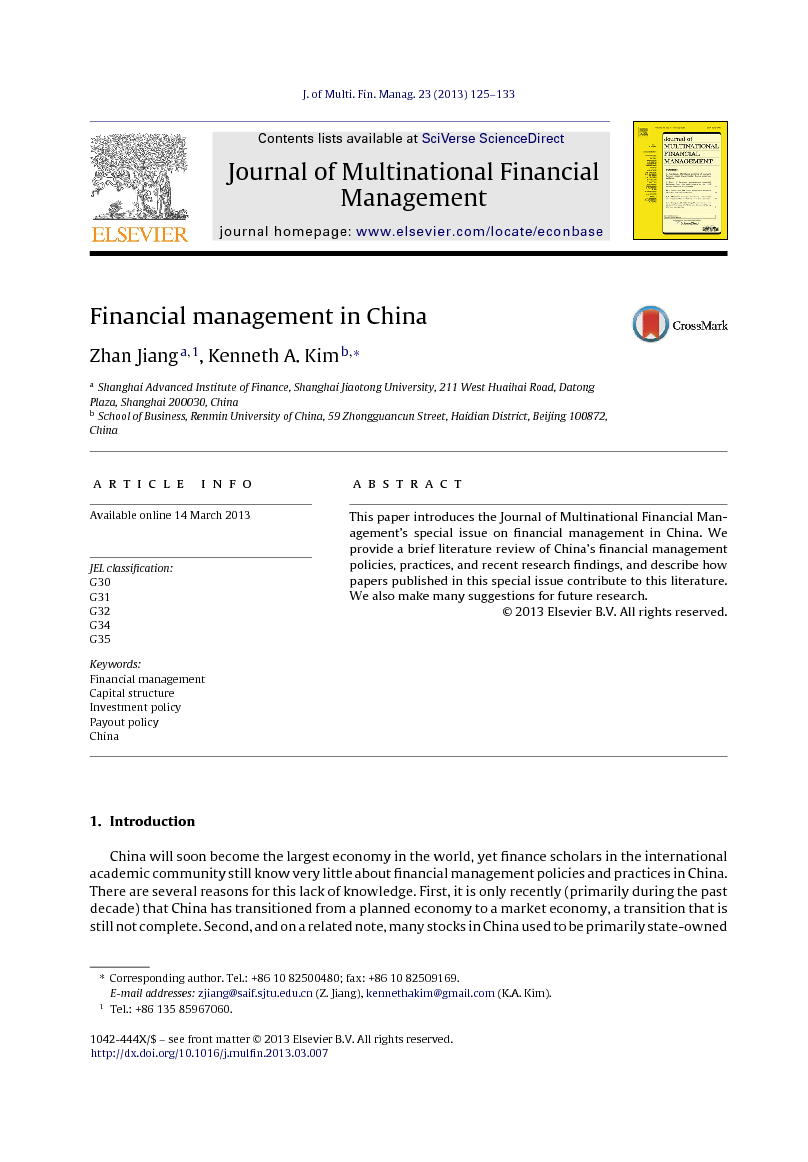This paper introduces the Journal of Multinational Financial Management's special issue on financial management in China. We provide a brief literature review of China's financial management policies, practices, and recent research findings, and describe how papers published in this special issue contribute to this literature. We also make many suggestions for future research.
China will soon become the largest economy in the world, yet finance scholars in the international academic community still know very little about financial management policies and practices in China. There are several reasons for this lack of knowledge. First, it is only recently (primarily during the past decade) that China has transitioned from a planned economy to a market economy, a transition that is still not complete. Second, and on a related note, many stocks in China used to be primarily state-owned and/or nontradable, making studies on China's financial management practices not generalizable to capital-market-oriented economies. Third, China's stock markets are young, as they were opened only in 1990. Fourth, the quality of Chinese financial statements used to be questionable, and many important data items were unavailable until recently. Fifth, and perhaps most importantly, China's economy, along with its regulatory and institutional environment, changes rapidly. Indeed, papers on China's financial markets published in academic journals ten years ago may report findings not even relevant or useful today.
We, the editors of this special issue, both teach modern corporate finance theory in business schools in China. When we describe or illustrate a financial management theory, concept, or practice, all of which are based primarily on Western thought and practices, our Chinese students often respond, “this is not how it is done in China.” As we have gotten to learn China's financial management policies and practices, and the regulations that directly affect these policies and practices, we have to come to realize that our students are sometimes right. However, they are also sometimes wrong. In what ways is financial management in China similar to what is practiced in other countries, and in what ways is it different? Shedding some light on this question is the purpose of this special issue.
In our introduction to the special issue, we first briefly review the literature on China's financial management policies and practices.2 In this way, we try to narrow the gap in the profession's understanding of China's financial management practices. We document both similarities and differences between China and the rest of the developing and developed world. Second, and more importantly, we describe how the papers in this special issue improve our understanding of financial management practices in China. Finally, we make many suggestions for future research.
The papers in this special issue contribute importantly to our understanding of financial management policies and practices in China. But more research is needed. In our paper, we suggest many topics for future research. The papers published in this issue also raise additional questions that can be addressed by future research. There are many unique institutional and regulatory differences between China and the rest of the world. And, at the same time, many Chinese firms are enjoying tremendous growth and profitability. Therefore, China provides an excellent setting and opportunity for empirical finance research. We hope that our paper and this special issue will motivate some of that future research.


